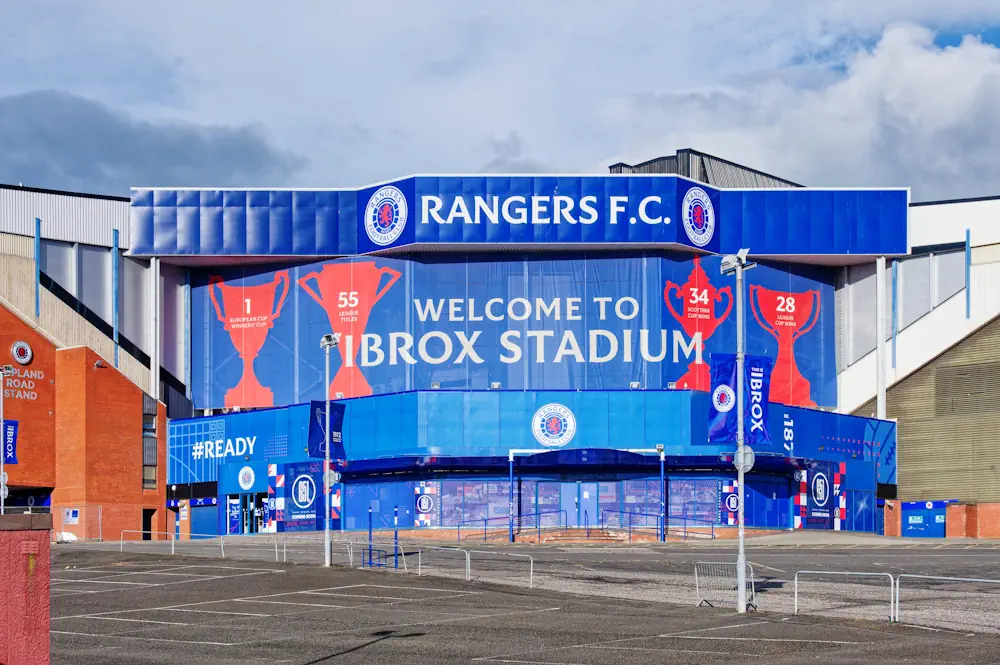The story of Rangers' relegation
The name of Glasgow Rangers is inevitably associated with the Old Firm, tradition, successes and mainly, with trophies won since, not for nothing, it is the European club with the most trophies won and the second in the world, behind Al Ahly from Egypt, which already tells us about the greatness of the Protestant club. In Scotland, they have won 55 league championships, 34 Scottish Cups and 27 League Cups, but, despite all their success, this did not prevent them from suffering an administrative relegation that was really a refoundation of Rangers, starting from the fourth tier of Scottish football, which served to prevent the disappearance of the club.
History of Rangers
The club was founded in March 1872 by a group of five young athletes who decided to have their own football club and took the name from an English rugby team called Swindon Rangers. The club was one of the 10 founding members of the Scottish Football League in 1890 and the first champion of the tournament (jointly with Dumbarton FC) and that was the first trophy for Rangers' showcases. In the 1898-99 season, the club won the league by winning all their games, a feat that has not been equaled.Rangers, since its founding, had a strong relationship with the Protestant part of Scotland, being deeply nationalists, which helped to develop a rivalry with their city neighbors, Celtic, which was the Catholic team that was supported by the Irish who immigrated to Scotland.
Nine in a row
Rangers' growth over time was exponential and saw it have several great teams that allowed the club to win many trophies. However, the stage from the mid-80s to the mid-90s is possibly the most important in the history of the club. In 1986, after almost a decade without winning the Scottish league, seeing how Celtic, Alex Ferguson's legendary Aberdeen team and even Jim McLean's Dundee United lifted the title, Rangers hired Graeme Souness and he, at the same time, asked the hiring of Walter Smith as his assistant, who had just coached Scotland's under-18 and under-21 national teams and worked as assistant with Alex Ferguson in the senior team, as well as having had a brief spell as Jim Mclean's assistant at Dundee United.Souness made important signings for Rangers coming from England, taking advantage of the fact that English clubs were unable to participate in UEFA international competitions because the ban imposed following the Heysel disaster. This strategy and significant financial support from the owner and board of directors allowed Souness to form a very strong team that won 3 Leagues and 4 League Cups in 5 years.
After some conflicts outside of the purely sporting, Souness left the position and was replaced by Walter Smith who, until then, was still the Englishman's assistant. Following in the footsteps of his predecessor who had won the last 2 leagues before leaving, Smith won 7 leagues in a row, leaving an impressive run of 9 Scottish leagues, a record that would be equaled by Celtic between 2012 and 2020.
The relegation
The years of success continued, maintaining significant economic investments both to bring in high-profile coaches and players of some international renown, at this point in order to bring the victories to the European scene, something that was never achieved, at least to the live up to expectations. In June 2012, a court ruling that ruled against Rangers for debts and tax evasion was made public.Since 1988, David Murray mainly and then Craig Whyte (for a short period), were the owners and administrative managers of the club where, as Murray himself recognized in the early 2000s, economic mismanagement was being made while looking for European success. The club was accumulating debts over the years that reached 150 million euros. Additionally, during the trial, it was discovered that between 2001 and 2010, Murray took advantage of the Employee Benefit Trusts to make additional payments to the players, which allowed him to avoid paying certain taxes, reaching the evasion of around 10 millions of euros.
Rangers went into administration, so all its assets were liquidated and that is where Sevco Scotland, a company owned by Charles Green, came into play, which was able to acquire the club's assets for 6 million euros and would later change its name to The Rangers Football Club. The clubs of the Scottish Premier League refused to allow the recently re-founded club to be part of the league and it was the Scottish Football League who accepted them, although starting from Scottish League Two (fourth category of Scottish football and the lowest division of the Scottish Football League), this led to most of the players refusing to continue in the institution, causing the squad to undergo major changes.
The comeback
Thus, in the 2012-13 season, Rangers, one of the most successful clubs in the world, was playing, for the first time in its history, in a lower division of Scottish football. With all the casualties the team had, Rangers had to turn to the club's young players and some professional players who agreed to help the club return to the Premier League. The club's fans kept coming to Ibrox Stadium throughout their participation in the lower divisions, filling the stadium in almost all home matches.With an impressive performance that allowed them to achieve 3 promotions in 4 years, in the 2016-17 season, Rangers were back in the elite of Scottish football, after winning the Championship (Second tier of Scottish football). In the 2020-21 season, with Steven Gerrard on the bench, Rangers once again, established themselves as Scottish Premier League champion, 10 years after their last first division league title and they achieved it undefeated as well as preventing their classic rival from overcoming his record of 9 consecutive league wins.
In this way, one of the most winning clubs in the world closed a cycle that took them from being at the top of their country to "hell" and then returning to the top.
